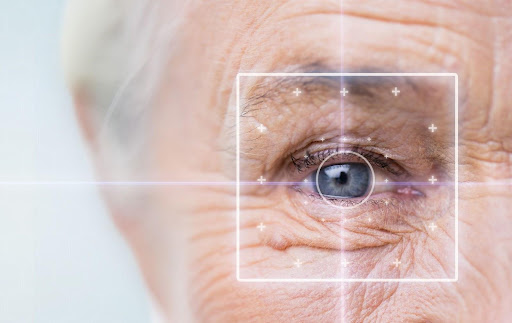
Vision Impairment in Seniors
According to the Centers for Disease Control and Prevention (CDC), vision impairment among older people is a public health concern. More than 2.9 million people in the United States have a vision impairment, many of which are 65 and older.
February is Low Vision Awareness Month. Since vision impairment is a growing concern among the adult population, February is an excellent time to learn more about it and how it may affect you or a loved one.
What is vision impairment?
Vision impairment means a person’s eyes are not getting optimal visual activity. Disruption to optical activity can include something minor as noticing blurriness when something is too close or too far. In extreme cases, vision impairment can consist of partial or complete blindness. The International Classification of Disease classifies vision impairments as mild, moderate, severe, or blindness.
Doctors can treat some vision impairments with corrective lenses or surgery. However, depending on the cause, doctors can only slow the progression of vision loss and often can’t reverse the damage. It’s essential to your vision health to get regular eye exams and treat any vision impairments as soon as you notice them.
What are the common causes of vision impairment?
Many things can cause vision impairment. A few common causes in older adults are glaucoma, age-related macular degeneration, cataracts, and diabetic retinopathy.
Glaucoma
Glaucoma is a group of eye conditions that damage your optic nerve, causing vision loss and blindness. Most people are unaware they have glaucoma because the symptoms are often not present until the later stages of the disease. A comprehensive dilated eye exam is the only way to determine if you have glaucoma.
Anyone can get glaucoma, but it’s most common in people 60 and older and those with a family history of the disease. There are three primary types of glaucoma: open-angle, angle-closure, and congenital. Most people have an open-angle, which is when the drainage angle between the iris and cornea is open, but the eye’s drainage system is not working correctly, leading to a gradual increase in eye pressure. As the disease progresses, you may notice a loss of peripheral vision.
Age-related macular degeneration
Age-related macular degeneration (AMD) causes blurriness in your central vision because of damage to the macula part of the retina. It’s a common condition and is the leading cause of vision loss among older adults, although it does not cause complete blindness.
There are two types of AMD; dry and wet. Dry AMD is when the macula thins out. Wet AMD, which is less common, is when abnormal blood vessels grow behind the eye. Dry AMD can turn into wet AMD, but treatment options are available.
Cataracts
A cataract is when the lens of your eye gets cloudy. Cataracts develop when proteins in the lens break down and clump together, creating cloudiness over the eye. They’re widespread with age, affecting nearly half of the people after age 80.
It may be difficult to tell if you have a cataract when it first develops, but you’ll notice blurry vision or dullness of colors over time. You can get surgery to remove cataracts, but getting treatment as early as possible is essential to avoid vision loss.
Diabetic Retinopathy
If you have diabetes, you may be at risk for diabetic retinopathy. This condition causes vision loss and blindness by affecting the blood vessels in the retina. Like most vision impairments, there aren’t signs or symptoms in the early stages, but eventually, it may cause blurry vision or floaters.
Doctors suggest getting a comprehensive dilated eye exam yearly to check for diabetic retinopathy. The best way to reduce your risk is by managing your diabetes by staying active and taking your medicine.
How can Visiting Angels help?
Vision impairments can make daily living activities challenging. If you have trouble caring for yourself because of vision impairment, the team at Visiting Angels is happy to help. Our professional caregivers assist with personal grooming, medication reminders, light housekeeping, meal preparation, transportation, and more.
Our Daphne office serves seniors in Baldwin County and the greater Mobile area. If you’d like to learn more about our at-home care services or want to schedule a complimentary consultation, send us a message or call 251.517.9700.
